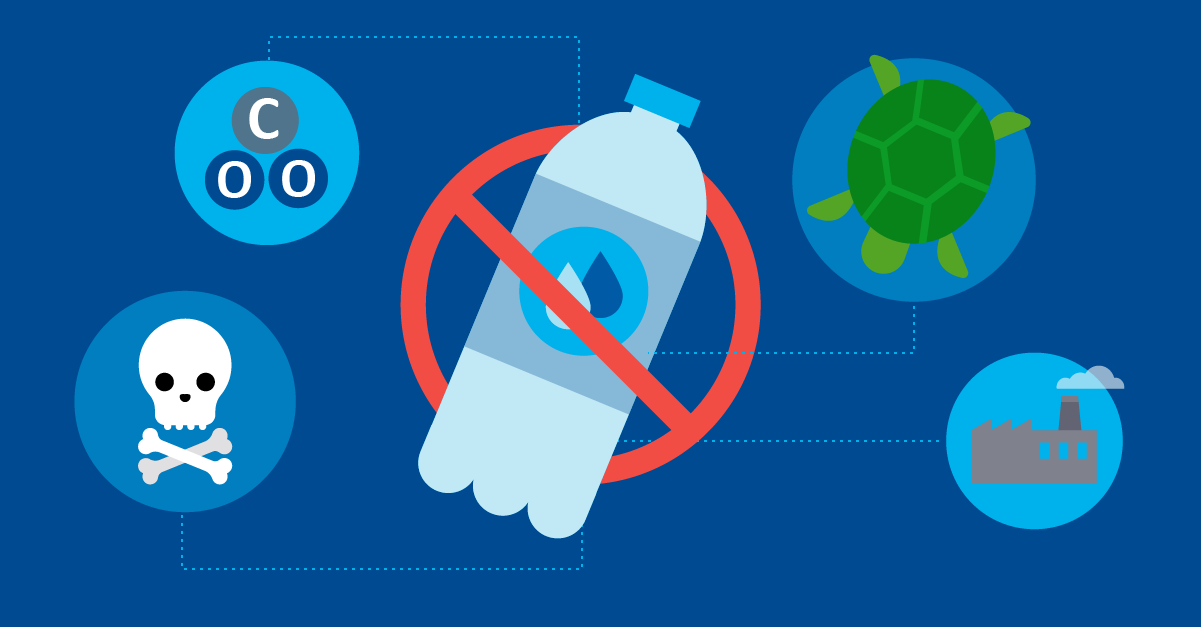When companies were asked to shutter and social removing requirements put into effect in the…
The Environmental Impact of Plastic Bottles

What Is the Impact of Plastic on the Environment?
How informed do you think you are about environmental change? Are you more of a beginner and eager-to-learn supporter, or are you so knowledgeable that you could give a run for their money?
If you’re like most people, you’ll fall somewhere in the center, which is why our current column at Non Plastic Environment focuses on how plastic damages the ecosystem.
We’ll begin by looking at the detrimental impact of plastic bags, an issue that has gained attention in recent years but still need more clarification.
What are the environmental consequences of plastic bags?
For a long time, plastic bags were utilized as a free and convenient way to carry your weekly grocery shopping and for a variety of other uses.
Only lately have the negative consequences been recognized, and a 5fills tax has been in place since 2015 to dissuade consumers from purchasing bags.
So, what is the environmental impact of plastic bags? Plastic bags, like other plastics, are produced from crude oil. This is a concern since crude oil produces substantial amounts of pollutants and is not biodegradable.
A bag takes at least 400 years to biodegrade, according to the Natural Environment website.
The environment and plastic water bottles :-
Plastic water bottles, like plastic bags, were formerly seen to be an important component of daily life, despite being discarded at pleasure. This has the following consequences:
-Overflow at landfills necessitates the use of a large quantity of fossil fuel in the manufacturing process.
-Covering the ocean’s surface, resulting in the annihilation of habits and animals
-Importing waters from other countries necessitates the use of trucks for transportation and delivery, which has a significant environmental impact.
Despite the fact that the Government has deemed tap water safe for drinking, 1500 plastic water bottles are consumed every second.
What should be done? More drinking facilities with more convenience are needed so that consumers are encouraged to reuse plastic bottles rather than toss them away.
Non Plastic Beach manufactures a variety of plastic bottles for a variety of uses, including Chilly’s insulated water bottle and our new stainless steel insulated water bottles, which keep drinks hot for 12 hours or cold for 24 hours.
The environmental impact of plastic pollution
You should be aware of some of the environmental impacts of plastics by now, but let’s focus on plastic pollution particularly.
Toxic chemicals from plastic pollution damage humans, animals, and plants. Plastic can take hundreds or even thousands of years to degrade, resulting in long-term environmental harm.
It has an impact on all creatures in the food chain, from plankton to whales. When plastic is consumed, toxins go up the food chain and can even be found in the fish.
How to Reduce Plastic Packaging
Most individuals will have observed the needless misuse of plastic in packaging during the last ten years.
This is a major environmental issue, with just 14% of all plastic packaging used in the world finding its way to recycling operations, and only 9% actually being recycled. A third of the waste is subsequently dumped in vulnerable ecosystems, with the remaining 40% ending up in landfills.
We’ve already addressed the benefits of reusing plastics, but there are some more steps you can do to decrease plastic packaging:
Cook from scratch to decrease food waste and packing.
Reduce unnecessary packaging by shopping at scoop shops or at greengrocers and delis.
Rather than tea bags, get loose leaf tea.
Make your own lunch for work or eat the final meal.
The environmental impact of plastic cups
Coffee cups are a major source of plastic pollution because they include polyethylene, a plastic compound that helps the cup keep your coffee warm while also preventing it from being recycled.
Every year, 16 billion paper cups are consumed, resulting in the destruction of 6.5 million trees, the loss of 4 billion gallons of water, and the squandering of enough energy to power homes is also a waste.
Is it better to recycle or reuse plastics?
It is preferable to avoid using plastic wherever feasible, and only recycle as a last option. You may avoid recycling by adopting reusable alternatives.
There is evidence that some recycling was sent abroad, including to Asia, where it was dumped in the jungle rather than recycled.
To safeguard the environment, plastic bags are being banned.
Since the introduction of supermarket levies, there has been progress in reducing plastic consumption. However, there have been movements in some countries to prohibit the use of plastic bags.
Several African countries, notably Kenya, have outright prohibited the use of plastic bags.
Conclusion
If you’ve made it this far, we hope you’re looking at the plastic bag in your living room or the plastic bottle you bought at the store differently. We are all learning about the impacts of plastic, and there are still significant measures to be taken in order to make a significant difference. If you aren’t already convinced, we hope we’ve encouraged you to try some new, more ecologically friendly goods, and we’d appreciate it if you’d think about some of our own.
akomakoo.com is the website for all users in the Kingdom of Bahrain and the Eastern Province of Saudi Arabia. Launched in 2020, by Abdul Hamid Al Asfoor (Managing Director of Albayan Media Group), akomakoo.com has become the most exclusive and leading platform connecting buyers and sellers from Saudi Arabia to Bahrain and vice versa.
An exclusive and trusted community where underused goods are redistributed to fill a new need, and become wanted again, where non- product assets such as space, skills and money are exchanged and traded in new ways that don’t always require centralized institutions or ‘middlemen’.

